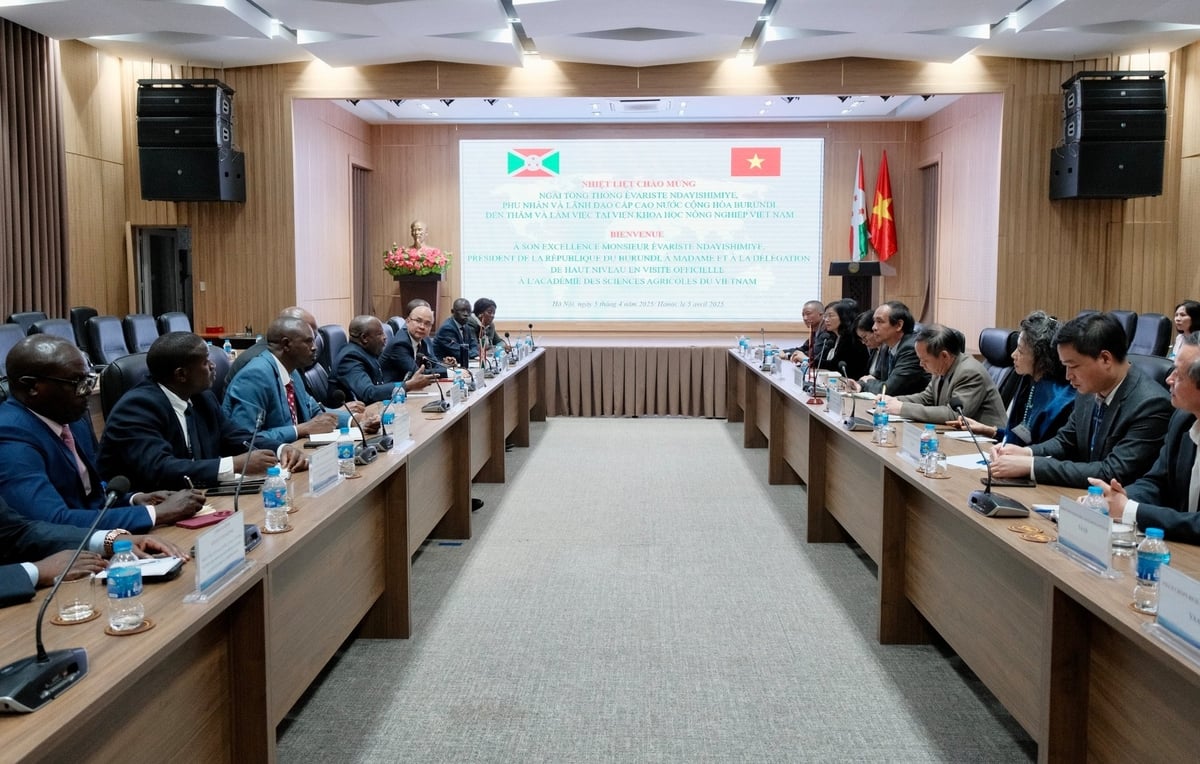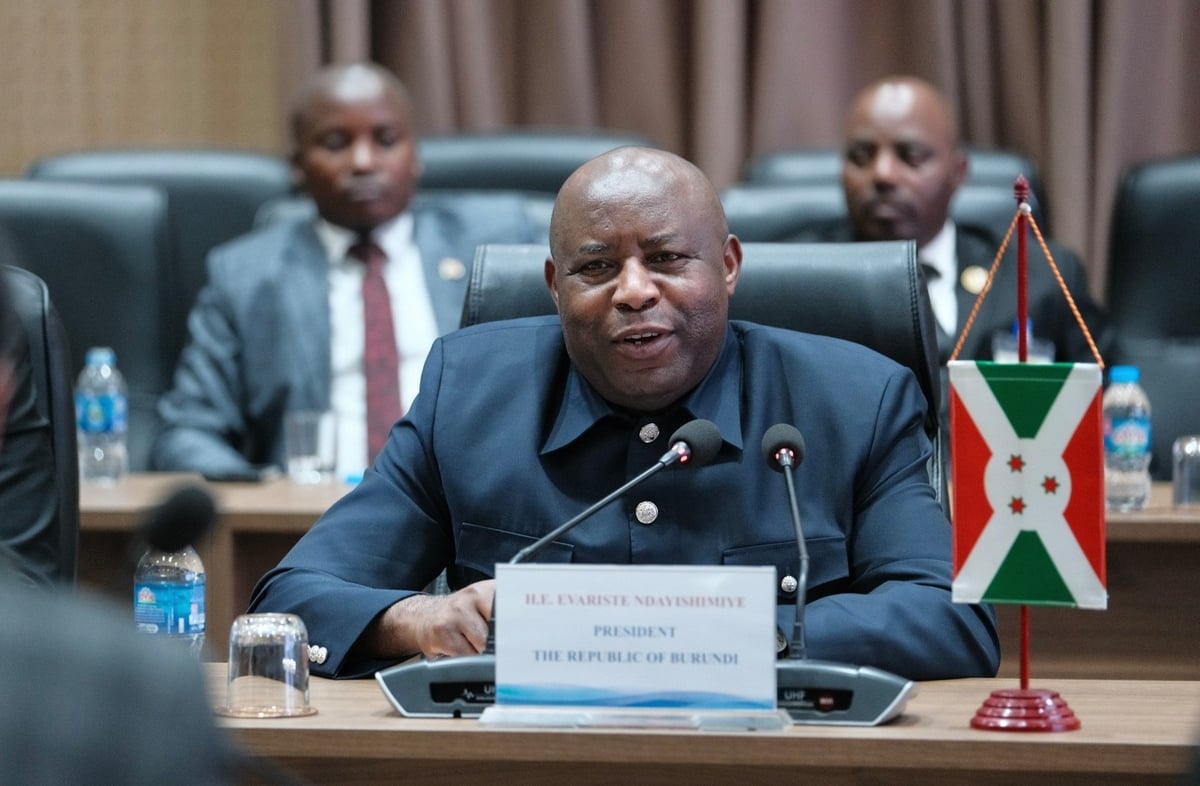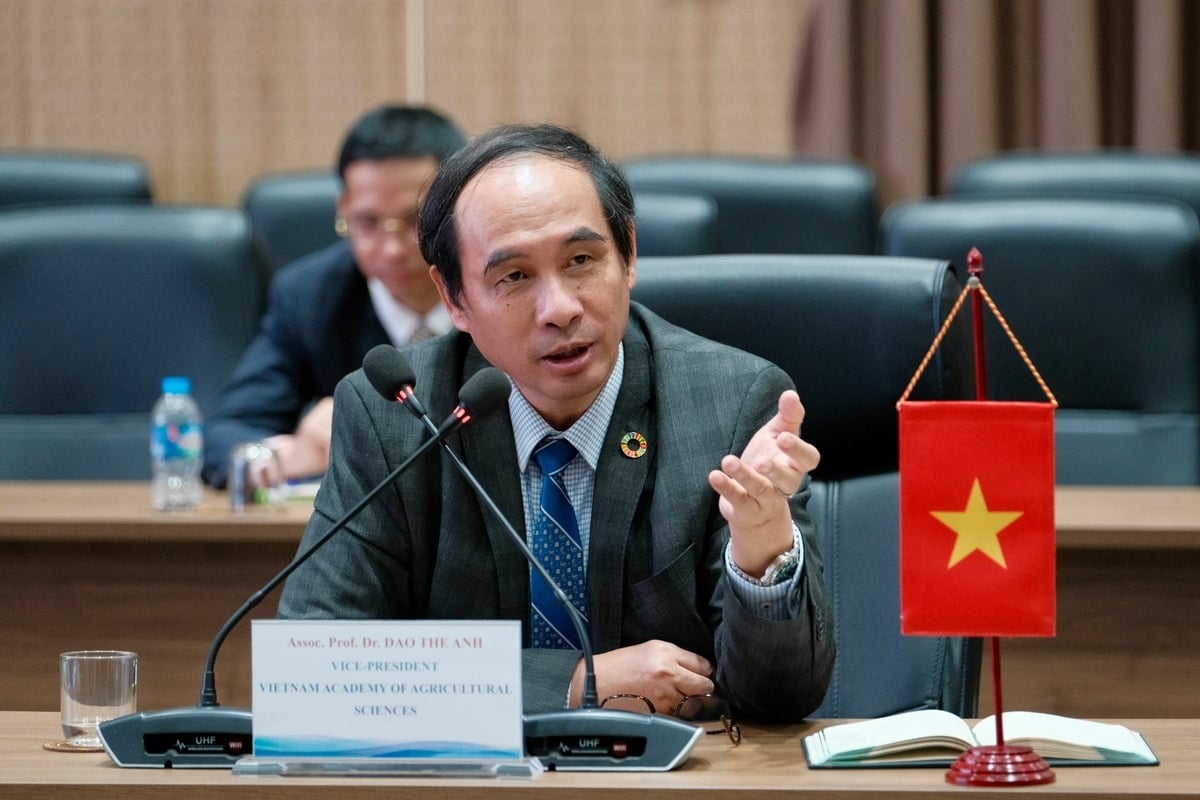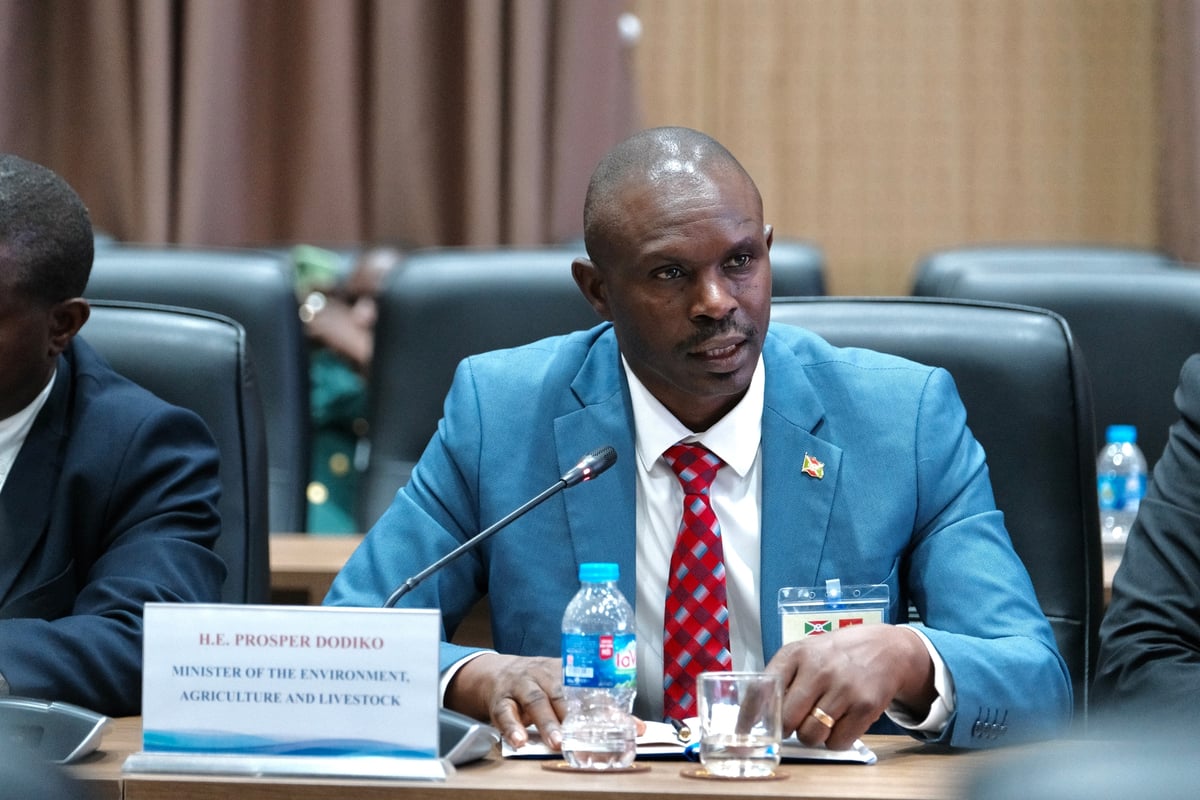November 24, 2025 | 06:33 GMT +7
November 24, 2025 | 06:33 GMT +7
Hotline: 0913.378.918
November 24, 2025 | 06:33 GMT +7
Hotline: 0913.378.918
On the afternoon of April 5, President of the Republic of Burundi Évariste Ndayishimiye paid a visit and worked with the Vietnam Academy of Agricultural Sciences (VAAS), as part of his official visit to Vietnam accompanied by Burundi First Lady.

The delegation of President of the Republic of Burundi Évariste Ndayishimiye visited and worked at the Vietnam Academy of Agricultural Sciences. Photo: Quynh Chi.
President Évariste Ndayishimiye emphasized that his visit to Vietnam affirms the determination of the State and Government of Burundi to strengthen and develop the friendship and cooperation with Vietnam in various fields such as agriculture, investment, science and technology, and digital transformation.
The President’s visit takes place as the two countries prepare to celebrate the 50th anniversary of the establishment of diplomatic relations between Vietnam and Burundi (April 16, 1975 - April 16, 2025).
During his visit to VAAS, the President of the Republic of Burundi congratulated the institution on its achievements and impressive research. He stated that Burundi is eager to learn from and apply the valuable experiences and scientific accomplishments of the VAAS.

President of the Republic of Burundi Évariste Ndayishimiye. Photo: Quynh Chi.
President Évariste Ndayishimiye affirmed that agriculture is closely tied to social welfare, livelihoods of the people, and that it is a fundamental right for everyone. “We place great importance on the role of agriculture, with the motto that every citizen should have enough to eat and earn an income from agricultural activities,” H.E. Évariste Ndayishimiye stated.
“We have more than 90% of our population engaged in agricultural production. Among our key export commodities, coffee and tea account for about 90% of our country’s foreign exchange earnings,” President Évariste Ndayishimiye shared.
The Government of Burundi is making efforts to modernize and diversify agricultural production, leveraging the country’s fertile land and youthful labor force to maintain its agricultural development potential. Investments in farming technologies and infrastructure improvement are considered crucial to fully harness this potential.
The President expressed his hope that in the future, Burundi will engage in extensive cooperation with the VAAS in key areas such as the exchange of pest- and disease-resistant genetic resources, biopesticides, and postgraduate training programs.

Assoc. Prof. Dr. Dao The Anh, Vice President of VAAS. Photo: Quynh Chi.
Assoc. Prof. Dr. Dao The Anh, Vice President of VAAS, stated that Vietnam has gained valuable experience in developing crop varieties with strong resistance to pests and diseases, especially in the context of climate change. He noted that the three key areas of cooperation between Vietnam and Burundi will focus on pest- and disease-resistant crop varieties, biological solutions, and PhD research training.
These are long-term directions that the Ministry of Agriculture and Environment of Vietnam aims to formalize through future agreements with the Ministry of Environment, Agriculture, and Livestock of the Republic of Burundi.
Minister of Environment, Agriculture, and Livestock of Burundi, Prosper Dodiko, was impressed by Vietnam’s gene banks for conservation and restoration of crop genetic resources, as well as the smart farming models, greenhouse cultivation systems, and the integration of automated management technologies, remote control systems.

Minister of Environment, Agriculture, and Livestock of Burundi, Prosper Dodiko. Photo: Quynh Chi.
“In the near future, I hope Vietnam's delegation will visit Burundi to learn about our land, soil, and climate. In Burundi, we produce seedlings following organic-oriented methods, minimizing the use of fertilizers, limiting pesticides, and integrating advanced technologies,” shared Minister Prosper Dodiko.
VAAS currently produces cassava yields of 40-45 tons per hectare and has developed crop varieties with relatively good disease resistance, ensuring both quality seeds and advanced cultivation techniques. The academy has made progress in breeding and cultivation techniques for tomatoes, potatoes, chili peppers, cucumbers, zucchini, and leafy vegetables. Additionally, it has successfully collaborated with international organizations to develop five cassava varieties resistant to pests and diseases.
At the end of the meeting, Assoc. Prof. Dr. Dao The Anh, Vice President of VAAS, expressed his appreciation for the cooperation potential between Vietnam and Burundi. He proposed that the two sides sign a Memorandum of Understanding, given that both nations consider agriculture a priority in their economic development strategies.
Burundi is located in East Africa, bordered by Tanzania to the east and south, the Democratic Republic of the Congo to the west, and Rwanda to the north. Burundi has an area of 27,650 square kilometers and a population of 13.77 million people.
Translated by Kieu Chi

(VAN) Applying green technology in rural water supply and sanitation helps improve resource efficiency, protect the environment, and enhance community living standards.

(VAN) Developing biosecure livestock production is the key that helps Tuyen Quang form linked chains in livestock production and build its brand in the market.

(VAN) During his bilateral activities in South Africa, Prime Minister Pham Minh Chinh welcomed Vice President of the South African Chamber of Commerce and Industry Neil Pollock.

(VAN) Prof. Dr. Hoang Van Cuong, National Assembly Deputy of the 14th and 15th terms, shares recent pioneering policy decisions.

(VAN) Deputy Minister Tran Thanh Nam directed a comprehensive reform of the agricultural extension system, emphasizing professionalism and connecting farmers with the market.
/2025/11/22/3633-1-072521_760.jpg)
(VAN) The signing ceremony took place under the witness of Prime Minister Pham Minh Chinh and President of the Republic of South Africa Cyril Ramaphosa.

(VAN) Severe flooding in Khanh Hoa Province has caused catastrophic damage estimated at around USD 30 million, with the agriculture and irrigation sectors alone accounting for roughly USD 15.7 million in losses.